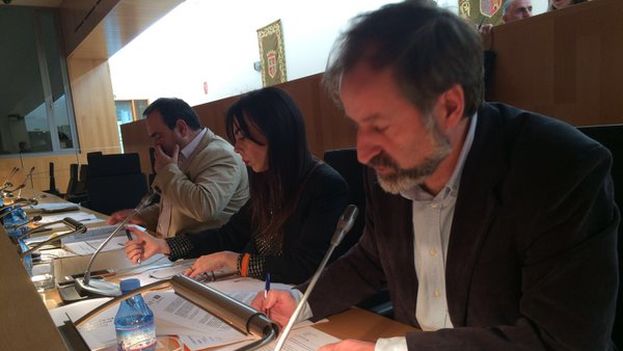
![]() 14ymedio, Havana, 24 January 2016 – The Citizens Party on the Malaga Provincial Council in Spain has called to prohibit any kind of cooperation between the provincial government and Cuba as long as Havana continues to not respect the most basic human rights, according to a report last Friday in the Spanish newspaper ABC. The proposal has received majority support from the People’s Party (PP) which holds the majority in the province.
14ymedio, Havana, 24 January 2016 – The Citizens Party on the Malaga Provincial Council in Spain has called to prohibit any kind of cooperation between the provincial government and Cuba as long as Havana continues to not respect the most basic human rights, according to a report last Friday in the Spanish newspaper ABC. The proposal has received majority support from the People’s Party (PP) which holds the majority in the province.
A spokesman for the Citizens Party, Gonzalo Sichar, pointed out that the administration must comply with the so-called democratic clause included among the recommendations of the European Union to grant aid to developing countries. These rules exclude states that do not hold multiparty elections, said the politician.
The Citizens Party, of the liberal wing, also called for an end to cooperation with Equatorial Guinea, since Teodoro Obiang’s government has been listed as one of the most repressive in the world in the reports of different human rights observers.
In fact, following the arrival of the PP to power in 2011 in the province, the Malaga Provincial Council has spent more than four years without funding a single project with Cuba, unlike what happened in the previous administration, led by the Spanish Worker Socialist Party (PSOE) in coalition with United Left (the Communist party). The latter provided an annual training grant to the island of a million and a half euros.
According to the Spanish daily, the records of many of these projects with Cuba “remain cloudy and unresolved.” The article also points out that there “were frequent trips to the island and the training sessions attended by politicians were blithely covered by the public purse.”
The Citizens Party proposal comes as the Council has voted for an increase of funds for development aid in 2016. According to the group’s spokesman, it wants to completely shield these programs so as to avoid the possibility of changes in politics or opinion leading to financing projects in countries with undemocratic regimes.
